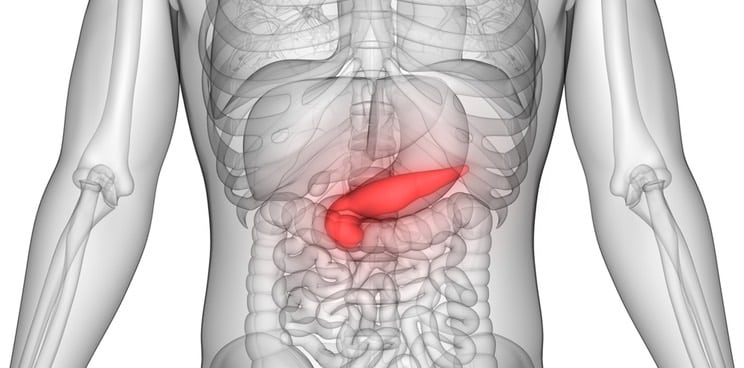Newsletter Signup - Under Article / In Page
"*" indicates required fields
After a year of slumping stock prices, Zealand Pharma is striking back, as its peptide drug improved blood sugar control in infants with the rare disease congenital hyperinsulinemia in a phase III trial.
In late 2020, the Danish firm Zealand Pharma A/S hit a big obstacle when its peptide drug dasiglucagon failed to treat the rare condition congenital hyperinsulinism (CHI) in a phase III trial. The company’s stock price dropped by 10% in reaction to the news, and only continued downwards the following year as massive volatility struck biotech stocks around the world.
Even the FDA approval of dasiglucagon for the treatment of low blood sugar levels in diabetes in May 2021 failed to reverse Zealand Pharma’s woes. Earlier this year, the company revealed slower sales expectations of the product than it had hoped and made large layoffs in its US operation.
This week, however, things took a positive turn for the firm, as dasiglucagon met the goal of a second phase III trial treating children in hospital with CHI. Delivered under the skin via a continuous pump, the treatment more than halved the glucose that needed to be given to the patients intravenously to control their blood sugar levels compared to a placebo. In addition, 11 of the 12 recruited patients will continue to a long-term safety extension study. Zealand Pharma’s stock price rose by almost 20% in reaction to the announcement.
Zealand Pharma’s president and CEO, Adam Steensberg, welcomed the results. “CHI is a serious ultra-rare condition with a significant unmet medical need which places a tremendous burden on both patients and families,” said Steensberg in a public statement.
“We believe the outcome of this trial supports the potential of dasiglucagon as a novel treatment for those living with CHI. We look forward to engaging with the US FDA and moving forward with our New Drug Application.”
CHI occurs when a genetic mutation causes cells in the pancreas called beta cells to produce too much insulin, a hormone that lowers blood glucose levels. This can lead to dangerously low blood sugar levels, which can seriously endanger the life and development of children with the condition. Hospitals can deliver glucose intravenously to increase blood sugar levels, but this approach is tedious and can’t be performed at home. For more than three decades, the only FDA-approved medication for CHI has been diazoxide, which can’t benefit all patients and can cause side effects including nausea and high blood sugar.
“As with many other rare diseases, CHI only recently started to get attention from the industry,” Steensberg told us by email.
Zealand Pharma’s dasiglucagon is an analog of the peptide hormone glucagon, which raises blood sugar levels. Dasiglucagon is designed to be stable enough to be delivered continuously via a subcutaneous pump, which could improve the control of blood sugar levels at home and lower the need for intensive hospital care in CHI. Additionally, it could delay the need to remove parts of the pancreas, which is a drastic intervention in CHI.
“Earlier attempts from other companies to design such stable analogs of glucagon have failed, which may also to some extent explain the lack of new medications for this indication,” explained Steensberg. “Subcutaneous infusion is important as intravenous infusions can only be done in a hospital setting.”
The first CHI phase III trial where dasiglucagon failed recruited 32 patients aged from three months to 12 years of age, and that were suffering from more than three hypoglycemic events per week despite being heavily treated. Adding dasiglucagon to the standard of care didn’t show any significant benefits over regular treatment when the patients measured their own glucose levels. However, in a secondary measure, Zealand Pharma saw a strong effect in the first trial when it measured glucose levels via blinded continuous monitoring.
In the second CHI trial, Zealand Pharma recruited much younger children from seven days to 12 months of age in a hospital setting.
Zealand Pharma specializes in the delivery of treatments to control blood sugar in conditions such as CGI and diabetes. In early 2020, Zealand Pharma took over the stricken firm Valeritas Holdings Inc. and got hold of Valeritas’ V-Go Wearable Insulin Delivery device, which is marketed to improve the control of blood sugar in type 2 diabetes. Earlier this week, Zealand Pharma sold the V-Go device to MannKind Corporation for $10M in addition to sales-based milestone payments.
In a partnership with Beta Bionics, Zealand Pharma is also developing dasiglucagon as part of an artificial pancreas insulin pump, a form of technology that could one day allow diabetes patients to manage their blood sugar completely automatically. The firm is also running programs to treat obesity, nonalcoholic steatohepatitis (NASH), and inflammatory diseases.
Cover image via Shutterstock






